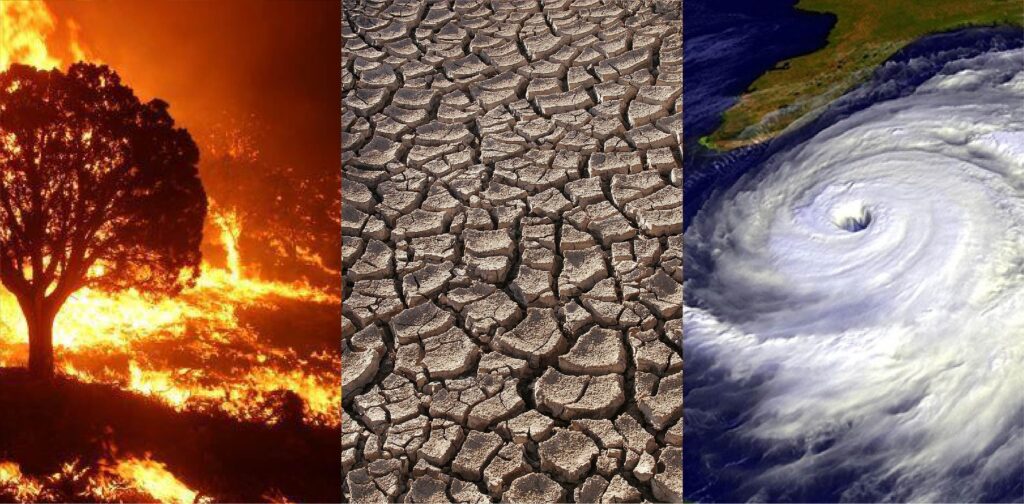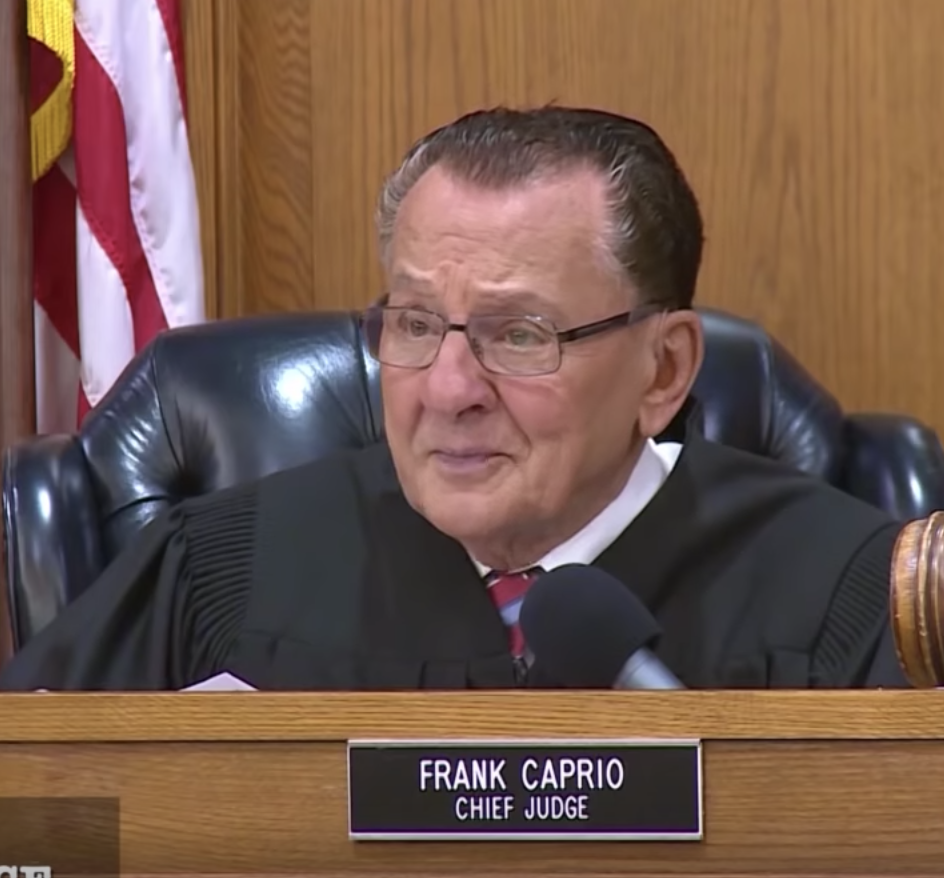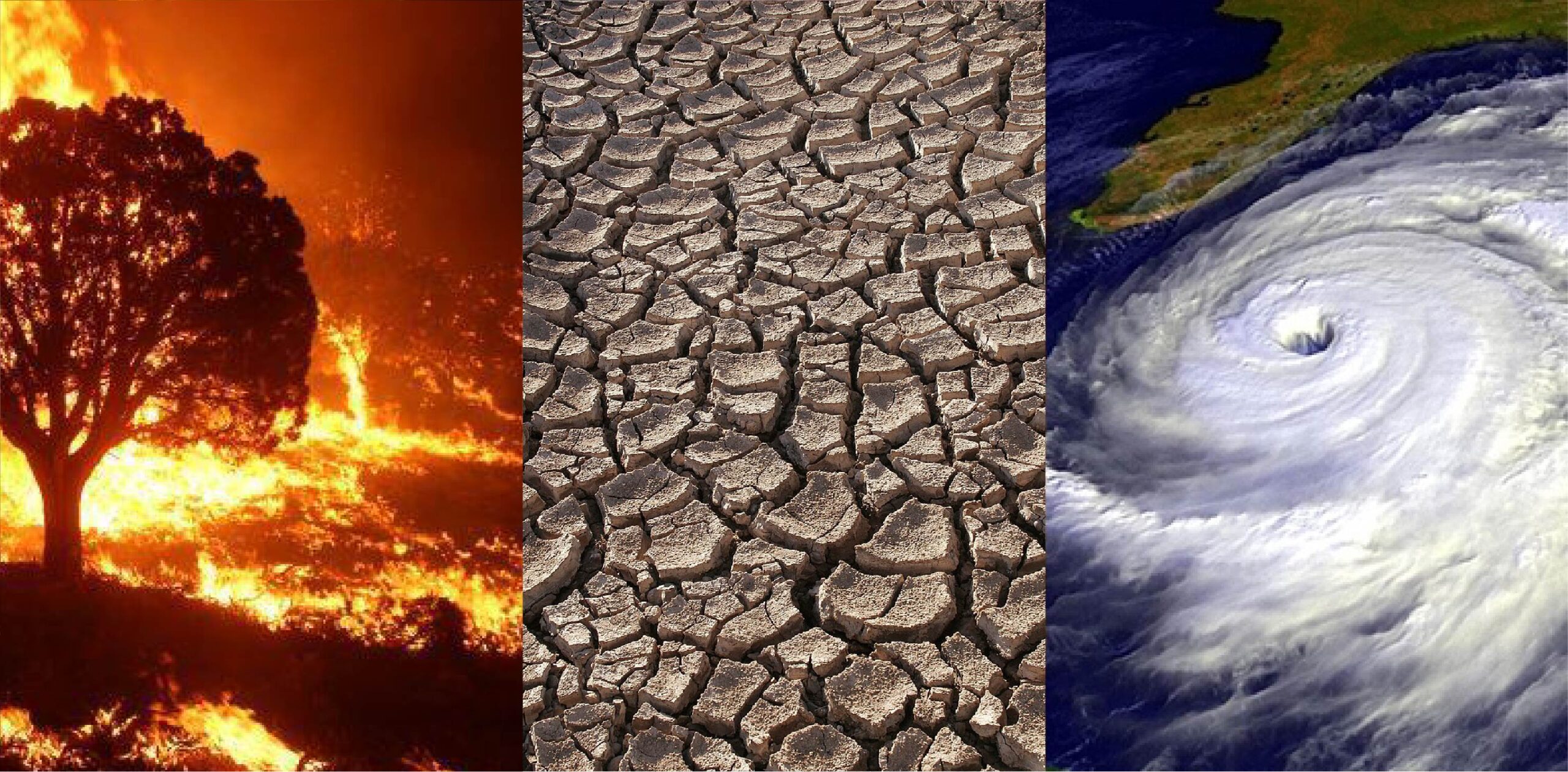
We are losing the battle against climate change.
You don’t have to be a scientist to see that the planet is experiencing more intense weather than ever before. Fire, floods, unremitting storms—all are having an unprecedented impact on the planet.
A report by the United States Geological Survey says it all. “With increasing global surface temperatures, the possibility of more droughts and increased intensity of storms will likely occur. As more water vapor is evaporated into the atmosphere it becomes fuel for more powerful storms to develop. More heat in the atmosphere and warmer ocean surface temperatures can lead to increased wind speeds in tropical storms. Rising sea levels expose higher locations not usually subjected to the power of the sea and to the erosive forces of waves and currents.”
The website answers all the pertinent questions. Whether you believe in the science or not, your eyes cannot hide you from a recent increase of storms, floods, heat and other conditions.
All this stems from the carbon-emitting fuels that we depend on. While sales of electric cars are increasing, much more needs to be done.
One solution is called carbon capture.
In a special report for The New York Times, Eden Weingart writes, “For most of human history, carbon emissions were balanced out by nature, said Rebecca Benner, a deputy director of the Nature Conservancy, but now we are ‘producing CO2 much faster than nature can recapture it.’
“Natural ecosystems like wetlands and forests absorb carbon from the air and turn it into biomass, a part of Earth’s natural carbon cycle, So planting trees is a low-tech way to capture carbon, and one that we know works on a large scale. But with continued use of fossil fuels, the amount of carbon dioxide in the atmosphere is rising faster than natural processes alone have been able to counteract, and experts have sought ways to augment what nature can do.
“Carbon capture is an umbrella term for technologies . . . that aim to take carbon dioxide out of the atmosphere or catch emissions and store them before they are released into the air.”
The United Nations Environment Programme issued it’s 2023 report and it’s far from encouraging.
“The report reiterates that humans are responsible for all global heating over the past 200 years leading to a current temperature rise of 1.1°C above pre-industrial levels, which has led to more frequent and hazardous weather events that have caused increasing destruction to people and the planet. The report reminds us that every increment of warming will come with more extreme weather events.
“The report outlines that the 1.5°C limit is still achievable and outlines the critical action required across sectors and by everyone at all levels.”
Wiengart’s story details how carbon capture works and it looks promising. The real problem, however, is the lack of moral will to make carbon-capture and other actions operational on a grand scale. To defeat . . . just turn the corner on climate change would require all countries to adopt systems and programs to reduce our dependence on carbon-based fuels and that takes responsibility on a massive scale.
Science has been warning us for decades. Now, it’s here. Will we demonstrate the moral will to change the climate crisis?
Comments











